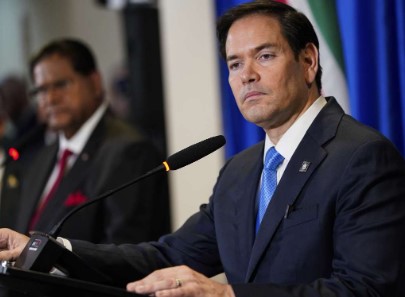On Monday, US Secretary of State Marco Rubio announced that the United States has imposed additional visa restrictions on Chinese officials involved in restricting foreign access to Tibetan areas. This move comes in response to China’s control over the region and its denial of access to US diplomats, journalists, and other international observers.
US Takes Action Against Chinese Officials Over Tibetan Access
In a statement posted on X (formerly Twitter), Rubio said that China has been involved in “systematic efforts” to limit access to Tibet, and he demanded that Beijing allow US diplomats and others unrestricted entry to the Tibetan region.
According to Rubio, these actions were not in line with the principle of reciprocity, meaning that the US is demanding equal treatment for its diplomats in Tibet, just as Chinese diplomats enjoy broad access in the United States.
Rubio’s statement and the visa restrictions aim to hold China accountable for what the US sees as a lack of transparency and fair treatment in Tibet, a region that has long been a point of contention between China and the international community.
The United States continues to press China on its policies in Tibet, calling for the protection of Tibetan human rights and religious freedoms in the area. The US has also repeatedly urged China to allow Tibetans to preserve, practice, and teach their religious traditions and language without government interference.
China’s Lithium Boom: 3X Growth Secures Second-Largest Global Reserve
Chinese Restrictions on Foreign Access to Tibet
Tibet has been a sensitive issue for China ever since the country took control of the region in 1950, which China calls a “peaceful liberation.” However, many human rights organizations and Tibetan exiles criticize China’s rule, calling it “oppressive.” The Chinese government maintains strict control over the area, and international observers have been largely kept out.
For years, China has prevented US diplomats, journalists, and other international figures from entering Tibet. This has led to growing frustrations in the United States and other countries, especially regarding the lack of ability to monitor the situation in Tibet firsthand. Critics argue that this restricted access is part of China’s broader efforts to suppress information about its activities in the region, including its treatment of Tibetans and their religious practices.
At the same time, Chinese diplomats and journalists have been able to enjoy broad access to the United States. This disparity in access has led to concerns about a lack of fairness and reciprocity. The United States sees this as a serious issue, as it prevents US officials from understanding and reporting on the situation in Tibet, particularly with regard to human rights abuses and religious freedom.
US Investment Firms Trapped as China Regulator Blocks Billion-Dollar Panama Canal Sale
US Response: Visa Restrictions and Calls for Unrestricted Access
In his post on X, Secretary of State Rubio strongly criticized the Chinese Communist Party (CCP) for its refusal to allow US diplomats, journalists, and other international observers into Tibet. Rubio pointed out that China has systematically restricted foreign access to the region while allowing its own diplomats broad access to the US. This imbalance, according to Rubio, is unacceptable.
He emphasized that the United States would not tolerate such a lack of reciprocity any longer. The new visa restrictions apply to Chinese officials who have been involved in these efforts to restrict access to Tibetan areas. While the US has not named specific Chinese officials or provided detailed information on the measures, the intention is clear: to pressure China into allowing unrestricted access to Tibet for US diplomats, journalists, and others.
China Freezes Business Ties with Li Ka-shing Over Panama Ports Deal
In addition to limiting access for foreign diplomats and journalists, US diplomats are also unable to provide services to US citizens traveling in Tibet. This further complicates the relationship between the two countries, as it limits the US government’s ability to assist its own citizens in the region. The restrictions have created a significant barrier for American citizens and diplomats, making it harder for them to engage with or understand the situation in Tibet.
Rubio’s statement underscores the US demand for “unrestricted access” to Tibet for diplomats and others, marking a significant step in the ongoing dispute over the region. The visa restrictions are part of a broader effort to hold China accountable for its actions in Tibet and to call for greater transparency regarding the situation there.
In the context of this move, it is important to remember that the US has long recognized Tibet as part of China, but it continues to press Beijing to respect the religious freedoms of Tibetans and their right to practice, preserve, and teach their traditions and language without interference from the Chinese government. This issue remains a point of tension in the relationship between the US and China, with both sides holding differing views on the status of Tibet and the treatment of its people.

